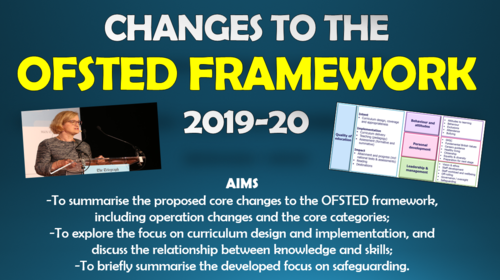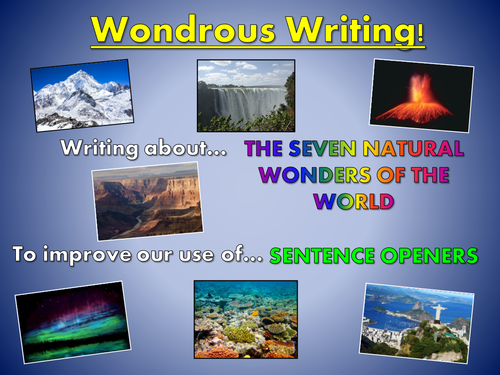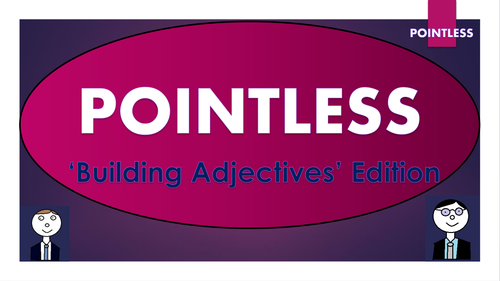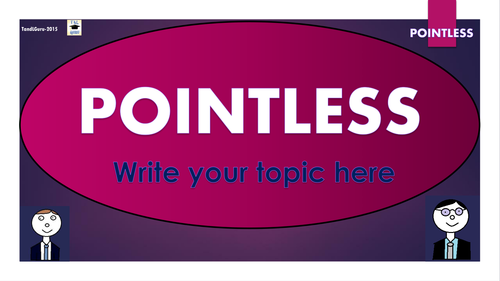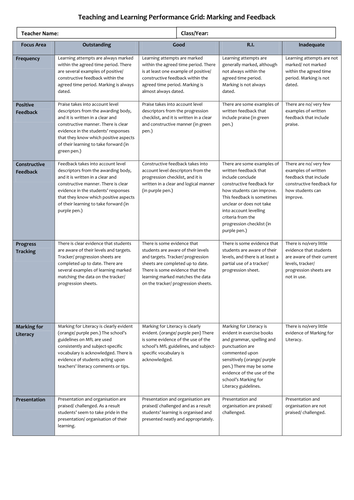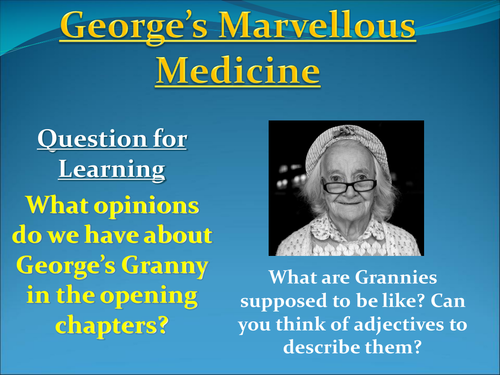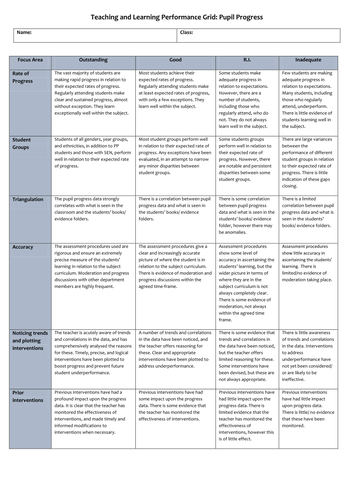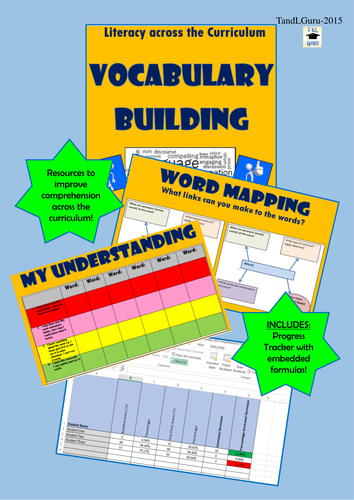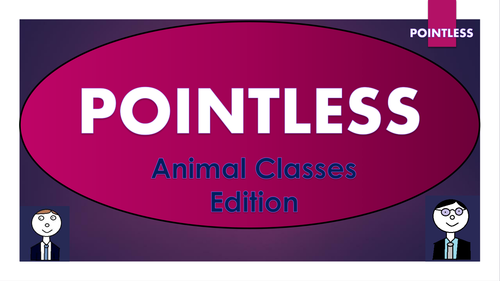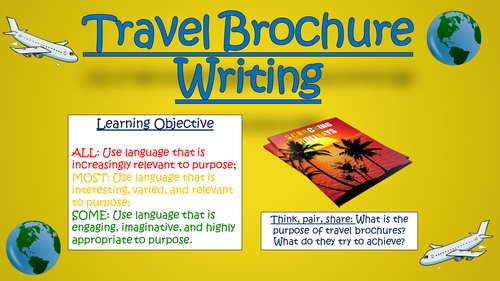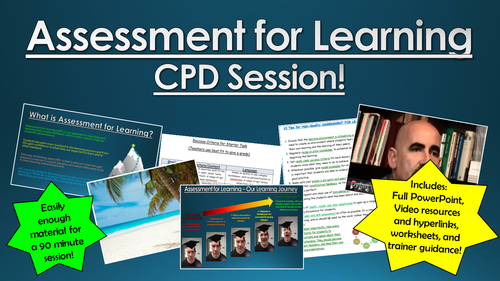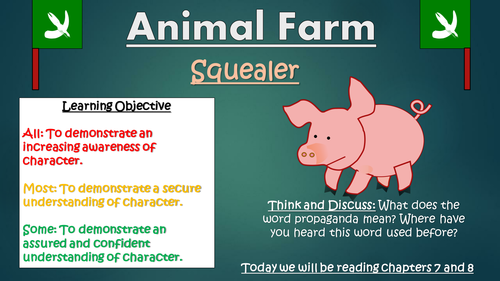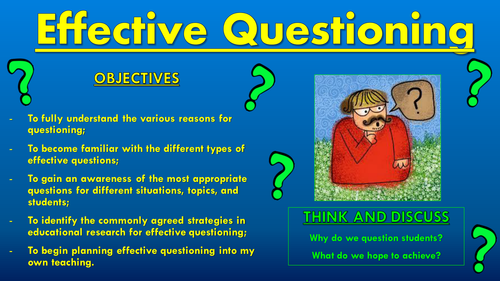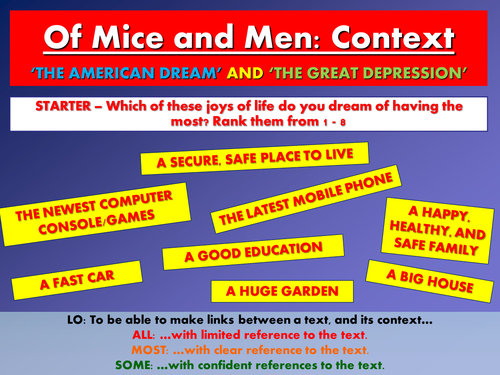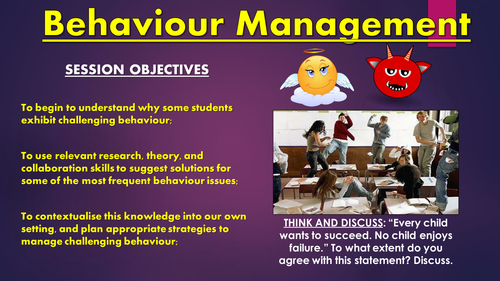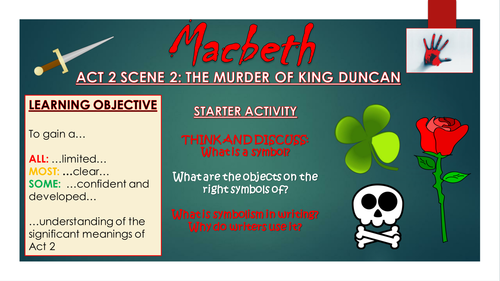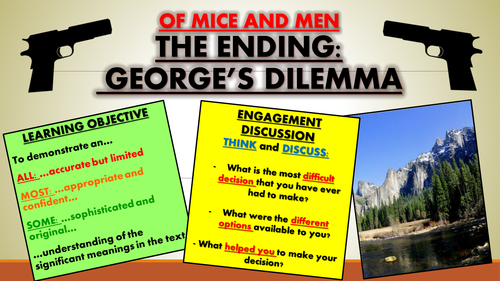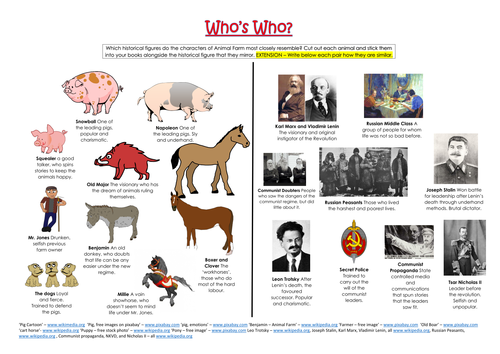
3k+Uploads
1885k+Views
2224k+Downloads
Pedagogy and professional development

CPD - Summary of Changes to the Ofsted Framework 2019-20
AMENDED TO REFLECT THE FINAL VERSION OF THE NEW OFSTED FRAMEWORK - MAY 2019.
This clear and concise review is designed to provide senior/middle leaders, governors, and academic staff with a comprehensive understanding of the new Ofsted framework, to be launched from September 2019.
It aims to:
-Summarise the proposed core changes to the OFSTED framework, including operation changes and the core categories;
-Explore the focus on curriculum design and implementation, and discuss the relationship between knowledge and skills;
-Briefly discuss the developed focus on safeguarding in the new framework.
The slides are colourful, visually-appealing, and break down some of the more complex points so that they are easily understood. It also contains a range of discussion questions throughout, both within and at the end of each section.
I hope that you find it helpful!

Pupil Progress Data Analysis Template (Automatic percentage formulas and pie charts!)
This neat, compact, and visually-engaging data analysis template is an invaluable tool for school leaders, teaching and learning leaders, curriculum leaders, or any other school-based staff responsible for the inputting and analysis of pupil progress data.
All that the resource requires is for users to input raw pupil progress data, and it will automatically calculate percentages, and create colourful pie-charts to provide detailed yet easily-readable headline figures. Each excel sheet has been designed to fit onto one A4 page, for easy reading, and this includes space for users to input analysis of the data and plot interventions.
5 sheets have been pre-populated with example data, but the user can create as many extra sheets as they want by simply right-clicking the tabs, selecting 'move or copy', and then ticking the 'create copy' box. The sheets that are created will contain all of the same formulas and pie-charts, to enable you to create page after page of detailed progress analysis!
All of the columns and row names in the tables can be edited to suit the language used by your school, but please avoid altering the percentages rows, as you may lose the formulas.
If you have any further questions after purchasing this product, please contact me at tandlguru@yahoo.co.uk
Thanks!

Wondrous Writing! Seven Wonders of the World - Sentence Openers
Wondrous Writing is an interesting and effective way to enable young people to build their writing skills. Focussing on one key writing skill, students compose sentences during timed intervals, using picture prompts as inspiration. This aids them in constructing a larger, more substantial piece of writing over the course of the lesson. Assessment for Learning is utilised throughout, with success criterias provided for students to peer/self assess both before and after the main task.
The focus for this lesson is sentence openers - utilising the topic of 'The Seven Wonders of the World.' Included in this pack is:
- Whole lesson PowerPoint, complete with visual stimuli for writing;
- Hyperlink to stopwatch app;
- Writing Template
- Writing to Describe Help-sheet
- Success Criteria - Peer/Self-Assessment Form
Sale

Pointless Bundle - All of the games and template to create your own!
Based on the popular game show 'Pointless', these resources are perfect for use as a starter activity, plenary, or revision tool. Editable, so that you can change to any other topic or change the questions/answers. Containing sound clips, engaging visuals, and suitably challenging questions, these resources are effective at both promoting engagement and enhancing learning.
There are several fully functional and challenging games, including:
- English ('Building Adjectives', and learning 'Macbeth.')
- Maths ('Shape, Space, and Measure)
- Science (Physics, Space.)
- History ('World War II' and 'The Tudors.')
- Geography (Populations)
Plus, a blank template for you to create your own Pointless games, based on whatever topic your class is studying!
The nature of the game ensures that this resource can challenge students of all levels.

A View from the Bridge Pointless Game! (and blank template to make your own games!)
Based on the popular game show 'Pointless', this resource is perfect for use as a whole lesson resource, enrichment option, or revision tool. Editable, so that you can change to any other topic or change questions. (I've also added a blank template so that you can make your own games from scratch). Containing almost 30 slides of sound clips, engaging visuals, and suitably challenging questions, this resource is effective at both promoting engagement and enhancing learning. There are several full rounds of questions to build or revisit knowledge of characters, plot, and themes in A View from the Bridge:
Round 1. The characters in A View from the Bridge (takes approx 10 mins)
Round 2. Quotations from the text (takes approx 15 mins)
3. Settings, themes, and objects (takes approx 15 mins)
4. Themes in A View from the Bridge (takes approx 10 mins)
The nature of this game ensures that the resource can challenge students of all levels.

Teaching and Learning Performance Grids
This resource pack is comprised of:
1.) Observation & Learning Walk Performance Grid
2.) Marking and Feedback Performance Grid
For use alongside lesson observations, learning walks, and book monitoring, these succinct performance grids enable observers to gauge, categorise, and feedback on teaching and learning sessions using OFSTED guidance for effective teaching. The documents provide descriptors of 'outstanding', 'good', 'requires improvement' and 'inadequate' practice within appropriately considered teaching and learning focus areas, for example: Questioning, Positive Feedback, Use of Additional Adults, etc. Schools who still grade individual teachers have noted that these are helpful aids in arriving at an overall judgement.

George's Marvellous Medicine - Assorted Resources! (Worksheets, PowerPoints, Assessments etc.)
This pack contains a vast number (I think there's about 20 resources here) of activities, resources, and ideas for the teaching of Roald Dahl's 'George's Marvellous Medicine.' They should provide an excellent starting point for anybody who wants to teach the book and is looking for some inspiration for individual lesson content/ tasks. The vast majority of these tasks can be adapted for differing age groups/ ability ranges/ needs.
The pack contains resources that focus on the key themes in the book, such as family and emotions. There are also resources that enable to build individual reading skills, such as inferring and deducing, pulling out quotations, and analysing language. In writing, students learn to think imaginatively and create texts appropriate to audience and purpose.
All images are licensed for commercial use, and are cited on the final slides of the PowerPoints.

Pupil Progress Performance Grids
For use alongside data captures and discussions about pupil progress, this succinct performance grid enables observers to gauge and categorise department and individual teacher approaches to pupil progress data, using OFSTED guidance. The first page of the document provides descriptors of 'outstanding', 'good', 'requires improvement' and 'inadequate' feedback within appropriately considered focus areas, for example: Rate of Progress, Accuracy, Noticing Trends and Plotting Interventions, etc. Schools that already employ this tool often opt to highlight the descriptors on this page as they complete the scrutiny, thus creating a bigger picture of the strengths and areas for improvement observed. This can also be a helpful aid in arriving at an overall judgement, should your school opt to arrive at one. The second page allows observers to further pinpoint and describe the 'www' (what went well) and 'ebi' (even better if) aspects of the feedback, to aid teacher/department in improving their practice.

Vocabulary and Comprehension Building - Complete Approach and Tracker
This is a highly-effective tool for implementing a vocabulary and comprehension element to school-wide 'literacy across the curriculum' initiatives. Not only does it encourage students and teachers to focus upon fully understanding key words in each of their subjects, but it provides the school with a clear and concise measuring device for gauging students' vocabulary and comprehension improvements.
Students first sit the baseline test in each subject - a booklet that tests their complete knowledge of whichever subject-specific terms they need to learn in the next assessment period. Examples of the tasks they are asked to complete are:
- Spelling the word;
- Defining the word;
- Giving an example of the word in a sentence;
- Self-evaluating their understanding of the word;
- Selecting what type of word it is;
- Thinking of synonyms for the word, and more.
They are given a score for their performance in the tasks.
Upon completion of the teaching unit, students complete the 'End-Point' booklet, completing the same tasks. The two scores (from the baseline and the end-point) are recorded into the tracker document, (10 sheets are provided for different departments) which automatically calculates baseline and end-point percentages, and percentage increase or decrease. It also colour codes red or green dependent upon student performance. This gives the user a clear measure of the effectiveness of the literacy scheme across the school - perfect for performance management, reporting to OFSTED, and school improvement.

Animal Classes - Pointless Game!
Based on the popular game show 'Pointless', this resource is perfect for use as a whole lesson resource, enrichment option, or revision tool. Editable, so that you can change to any other topic or change questions. (I've also added a blank template so that you can make your own games from scratch). Containing almost 30 slides of sound clips, engaging visuals, and suitably challenging questions, this resource is effective at both promoting engagement and enhancing learning.
There are several full rounds of questions to build or revisit knowledge of different animal classes and types - an important KS1 Science topic within the National Curriculum.
Round 1. Reptiles
Round 2. Animal Classes
Round 3. Anagrams Round
Round 4. Birds
The nature of this game ensures that the resource can challenge students of all levels.

Travel Brochure Writing!
This engaging and stimulating lesson enables students to create travel brochure texts containing appropriate and imaginative language choices, utilising a range of different language techniques with subtlety in order to craft writing that serves the dual purpose of being descriptive and persuasive. In particular, students learn how descriptive language such as of similes, metaphors, and personification, in addition to persuasive devices such as statistics, rhetorical questions, and personal pronouns, can help to create truly authentic and effective travel brochure pieces.
The lesson follows a clear, logical, bite-size learning journey, which guides students towards differentiated learning objectives. Over the course of this journey, they become able to:
- Define what travel brochures are and understand their purposes;
- Identify the persuasive and descriptive language devices that travel brochure writers employ
- Analyse the effects of the language in a model travel brochure text;
- Utilise a clear and challenging success criteria document in order to construct their own travel brochure pieces;
- Self/Peer assess travel writing attempts.
This resource pack includes:
- A visually engaging whole-lesson PowerPoint presentation;
- An interesting and ambitious travel writing extract (with a highlighted version for teachers):
-A logical and challenging worksheet, encouraging students to analyse key features;
- A detailed lesson plan, complete with what the teacher and students should aim to achieve at each stage of the lesson.
All images are licensed for commercial use, and are cited on the final slide of the PowerPoint.

Assessment for Learning CPD Session!
This CPD session offers an engaging and original approach to introducing or revisiting assessment for learning. Grounded in educational research, this CPD session is interactive, well-structured, and has been successfully tried and tested. The aim of the CPD session is to develop the knowledge, skills, and strategies needed in order to utilise assessment for learning even more effectively in lessons, and it achieves this by embarking upon the following learning journey:
1. Understand what assessment for learning is and why it is effective.
2. Break down the individual components of assessment for learning.
3. Observe and evaluate a model of assessment for learning
4. Collaborate in developing your own assessment for learning strategies.
Included in this pack are: Full PowerPoint presentation, videos for analysis, hyperlinks to Youtube videos, resources for CPD activities, instructions and guidance for trainers/ presenters.
All images and videos are licensed for commercial use, and are cited on the final slide.

Animal Farm: Squealer (Double Lesson!)
These resources enable students to understand and analyse the character of Squealer in George Orwell’s Animal Farm. More precisely, students learn to make clear and accurate interpretations regarding his role in within the consolidation of Napoleon’s dictatorship. Students also demonstrate their understanding of chapters 7 and 8, with a particular emphasis upon the actions of Squealer. There are easily enough resources here for two lessons.
Students learn through the following tasks:
- Gauging and collaborating previous knowledge of 'propaganda' through a discussion-based starter task;
- Using an interactive, out-of-seat, group activity to build understanding of the features of propaganda;
- Reading chapters 7 and 8 with a particular focus on the character of Squealer, and demonstrating their understanding through a related activity sheet;
- Developing their understanding of Squealer's actions, and finding textual evidence to back this up, through a scaffolded, retrieval activity;
- Using their imaginative and creative skills, in addition to their knowledge of Squealer and propaganda posters, to construct their own propaganda poster for Animal Farm;
- Peer assessing their partners' learning attempts.
The following resources are provided:
- Engaging and colourful step-by-step PowerPoint
- Teacher lesson guidance/plan;
- Squealer's Propaganda worksheet;
- Four propaganda texts for group analysis;
- Template for recording group analysis;
- Chapters 7 and 8 worksheet (plus teacher answer sheet);
- Copies of Chapters 7 and 8.
All images and videos are licensed for commercial use, and are cited on the final slide of the PowerPoint.

Effective Questioning CPD Session!
This CPD session offers an engaging and original approach to introducing or revisiting effective questioning. Grounded in educational research, this CPD session is interactive, well-structured, and has been successfully tried and tested. The aim of the CPD session is to develop the knowledge, skills, and strategies needed in order to utilise questioning even more effectively in lessons, and it achieves this by embarking upon the following learning journey:
1. Fully understanding the various reasons for questioning;
2. Gaining familiarity with the different types of effective questions (linking to Bloom's and higher/lower cognitive questioning);
3. Gaining an awareness of the most appropriate questions for different situations, topics, and students;
4. Identifying the commonly agreed strategies in educational research for effective questioning;
5, Planning effective questioning into our own teaching.
Included in this pack are: Full PowerPoint presentation, a video for analysis, resources for CPD activities, a Bloom's helpsheet, instructions and guidance for trainers/ presenters.
All images and videos are licensed for commercial use, and are cited on the final slide.

Of Mice and Men - Context: The American Dream and The Great Depression
This engaging and interesting lesson aims to improve students' knowledge of the social, historical, and cultural context of John Steinbeck's Of Mice and Men. It also aims to build their skills in creating clear and specific links between the text and it's context, focusing on a specific extract from the novel.
The lesson uses a range of tasks, that require students to use their visual and interactive skills. It follows this learning journey:
- Understanding what dreams are and how they differ for each of us;
- Defining the American Dream, The Wall Street Crash and The Great Depression;
- Creating a timeline which visually depicts the other influential events of the time;
- Reading and reflecting on an extract from the text;
- Analysing the links between texts and contexts, from a success criteria;
- Evaluating each others' analytical attempts.
All images in this resource are licensed for commercial use, and are cited on the final slide of the lesson presentation.
You can choose to buy this resource alone, or as part of the 'Of Mice and Men - All Lessons and Scheme' bundle, which contains seven full lessons, resources, teachers notes, and PowerPoint presentations, plus a Pointless Of Mice and Men game, for just £5!

Behaviour Management CPD Session!
This CPD session offers an engaging and original approach to improving behaviour management practices. Grounded in educational research, this CPD session is interactive, well-structured, and has been successfully tried and tested. The aim of the CPD session is to develop the knowledge, skills, and strategies needed in order to utilise behaviour management even more effectively in lessons, and it achieves this by embarking upon the following learning journey:
1. Fully understanding the various reasons for challenging behaviour;
2. Observing and analysing behaviour management practices through a Youtube video;
3. Evaluating the main behaviour concerns in the participants' school/classrooms
4. Gaining familiarity with a range of research and theory suggesting the best methods and strategies for a number of different challenging situations;
5, Planning effective behaviour management strategies to prevent and combat challenging behaviour in the participants' real-life classrooms.
Included in this pack are: Full PowerPoint presentation, a hyperlinked video for analysis, cards fro the Diamond Nine activity, a top tips helpsheet, instructions for the main group task, and guidance for trainers/ presenters.
All images and videos are licensed for commercial use, and are cited on the final slide.

New GCSE English Language - Comparing and Contrasting
This informative and engaging double lesson aims to improve students’ ability to compare and contrast two different texts based on a similar subject. They will focus particularly on the purpose, audience, language, and structure of texts, and will learn to use comparing and contrasting connectives to highlight any similarities and differences. This has always been a crucial skill in English, but has an increased importance in the new GCSE for English Language, as there is a greater requirement for students to be able to make links and comparisons between texts.
The lesson follows a clear and logical learning journey, with students learning to:
- Understand the key terms 'compare' and 'contrast', and the importance of these skills in English;
- Categorise the different features that they can compare, under the headings 'Purpose', 'Audience', 'Language' and 'Structure;'
- Read (and identify the key features within) two morally and ethically intriguing texts, offering diverse views of young people in the media;
-Compare the two texts, using a clear and concise template, and newly-acquired knowledge of different types of connectives;
- Peer-assess each other's comparative essay attempts.
Included in this resource pack are:
- Whole double lesson, colourful and engaging PowerPoint presentation (Including assessment for learning referral slides)
- Cards for card-sorting activity;
- Two interesting and thought-provoking non-fiction media extracts (one a newspaper extract from The Evening Standard, and another a persuasive leaflet, both focused on the issue of how young people are perceived.)
- Template for main comparative analysis task;
- Full teacher guidance plan.
All images are licensed for commercial use and are cited on the final slide of the PowerPoint presentation

Macbeth: Act 2 Scene 2 - The Murder of King Duncan!
This lesson aims to improve students’ understanding of one of the key scenes in William Shakespeare’s Macbeth – Act II Scene II. In particular, they learn to make insightful interpretations about Shakespeare’s use of symbolism, and are enabled to understand how this would have affected Shakespearean audiences.
The lesson utilises a range of tasks, that require students to be visual and interactive learners. It follows this learning journey:
- Defining the key term 'symbolism' and establishing its importance as a literary technique;
- Understanding the different objects that were used as symbols in Shakesperean times through a multiple choice team game;
- Reading and interpreting Act 2 Scene 2, and establishing how symbolism is utilised throughout;
- Summarising the events of the scene;
- Analysing Shakespeare's intentions in using literary techniques, and considering the audience reactions to them;
- Peer/self evaluating the learning in the lesson.
Included in this resource pack are:
- A well-presented, thorough, and informative, whole-lesson PowerPoint presentation;
- Resources for the reading and interpreting activity - full scene transcript with space for notes;
- A template to help scaffold the main task, complete with P.E.E instructions;
- A comprehensive teacher guidance form/lesson plan to assist delivery.
All images in this resource are licensed for commercial use, and are cited on the final slide of the lesson presentation.

Of Mice and Men: The Ending - George's Dilemma
This engaging and interesting lesson aims to improve students' knowledge of the final events of the novel (the killing of Lennie by his best friend, George) in John Steinbeck's Of Mice and Men. It also aims to build their skills in retrieving information from texts, understanding the writer's ideas and opinions, and making precise and confident interpretations about texts.
The lesson uses a range of tasks, that require students to use their visual and interpersonal skills. It follows this learning journey:
- Reading, and interpreting the ending of the text;
- Inferring the hidden meanings in the final section of the text;
- Identifying the options available to George, and evaluating the pros and cons for each of them;
- Arguing a viewpoint either justifying or condemning George's actions;
- Evaluating each others' argumentative attempts.
The resource includes a comprehensive and visually engaging PowerPoint presentation, a worksheet to evaluate George's reasoning, an abstract from the text, a help-sheet for writing to analyse, and a lesson plan/ teacher guidance sheet.
All images in this resource are licensed for commercial use, and are cited on the final slide of the lesson presentation.
You can choose to buy this resource alone, or as part of the 'Of Mice and Men - All Lessons and Scheme' bundle, which contains seven full lessons, resources, teachers notes, and PowerPoint presentations, plus a Pointless Of Mice and Men game, for just £5!

Animal Farm: Old Major's Dream and The Revolution!
These resources enable students to understand and analyse the Old Major’s dream and the events of the animal revolution, in the opening two chapters of George Orwell’s Animal Farm. More precisely, students learn to make clear and accurate interpretations about events and characters, with appropriate links to the Orwell’s allegory and relationship to context.
Students learn through the following tasks:
- Gauging and collaborating previous knowledge through a discussion-based starter task;
- Reading the first two chapters and demonstrating their understanding through a related activity sheet;
- Developing their understanding of characters and context through a a making links activity;
- Analysing the allegorical nature of the opening chapters by further exploring the connections between characters and contexts;
- Peer assessing their partners' learning attempts.
The following resources are provided:
- Engaging and colourful step-by-step PowerPoint (includes links for video)
- Teacher lesson guidance/plan;
- Chapters 1 and 2 worksheet;
- Making Links Activity Sheet (1x more difficult, 1 x easier);
- Copies of Chapters 1 and 2.
All images and videos are licensed for commercial use, and are cited on the final slide of the PowerPoint. Note - internet connection is needed if you plan to use the video.

